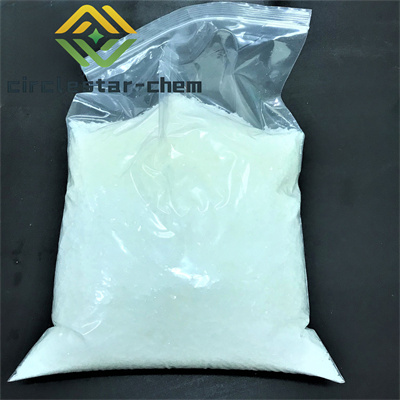
CAS: 443-48-1 Metronidazole
Product Name: Metronidazole
Synonyms: TIMTEC-BB SBB001486;1-(2-Hydroxy-1-ethyl)-2-methyl-5-nitroimidazole;1-(2-hydroxyethyl)-2-methyl-5-nitroimidazole;1-(beta-Hydroxyethyl)-2-methyl-5-nitroimidazole;1-(beta-Oxyethyl)-2-methyl-5-nitroimidazole;1H-Imidazole-1-ethanol, 2-methyl-5-nitro-;1H-Imidazole-1-ethanol,2-methyl-5-nitro-;1-Hydroxyethyl-2-methyl-5-nitroimidazole
CAS: 443-48-1
MF: C6H9N3O3
MW: 171.15
EINECS: 207-136-1
Product Categories: API's;Peptide Synthesis/Antibiotics;Active Pharmaceutical Ingredients;Heterocycles;Intermediates & Fine Chemicals;Pharmaceuticals;FLAGYL;antibiotic;Pharmaceutical intermediates;pharmaceutical intermediate;
Price on request
REQUEST NOWProduct Introduction:
Chemical Properties Metronidazole is an odorless, white, yellow, or cream-colored crystalline solid. Darkens on exposure to light. Bitter, salty taste (do not test). Soluble in hot water, slightly soluble in ethanol, slightly soluble in water or chloroform, very slightly soluble in ether.
Description Metronidazole is a nitroimidazole antibiotic first isolated in the 1950s. Many nitroimidazoles were being studied at the time, as the class was found to have trichomonacidal properties. Metronidazole was of particular interest due to its high activity against Trichomonas vaginalis and Entamoeba histolytica both in vitro and in vivo as well as clinical activity against many anaerobic pathogens including Gram-positive and Gramnegative bacteria and Giardia lamblia. Metronidazole is often used clinically for intra-abdominal infections and is the firstline treatment for Clostridium difficile–associated diarrhea.
Uses Metronidazole is the drug of choice for amebiases, vaginal trichomonasis and trichlomonadic urethritis in men, lambliosis, amebic dysentery, and anaerobic infections caused by microorganisms that are sensitive to the drug. Synonyms of this drug are flagyl, protostat, trichopol, and vagimid.
Uses Metronidazole is available as oral, intravaginal, topical, and parenteral preparations. It is manufactured by several companies, but is only available by prescription. Unintentional environmental exposure is unlikely, and if it occurs, it is very unlikely to cause toxicity.
Uses Used as an antibacterial in the treatment of rosacea. Antiprotozoal (trichomonas). A potential human carcinogen.
Uses Metronidazole, is an antibiotic and antiprotozoal agent. It is mainly used to treat or prevent systemic or local infections caused by anaerobic bacteria, such as anaerobic bacterial infections in the abdominal cavity, digestive tract, female reproductive system, lower respiratory tract, skin and soft tissues, bones and joints, etc. Inflammation, meningeal infections, and colitis caused by antibiotic use are also effective. Tetanus is often treated with tetanus antitoxin (TAT). It can also be used for oral anaerobic infection. On October 27, 2017, the list of carcinogens published by the World Health Organization's International Agency for Research on Cancer was preliminarily sorted for reference, and metronidazole was included in the list of class 2B carcinogens. In January 2020, metronidazole was selected into the second batch of national centralized drug procurement list.
Related products